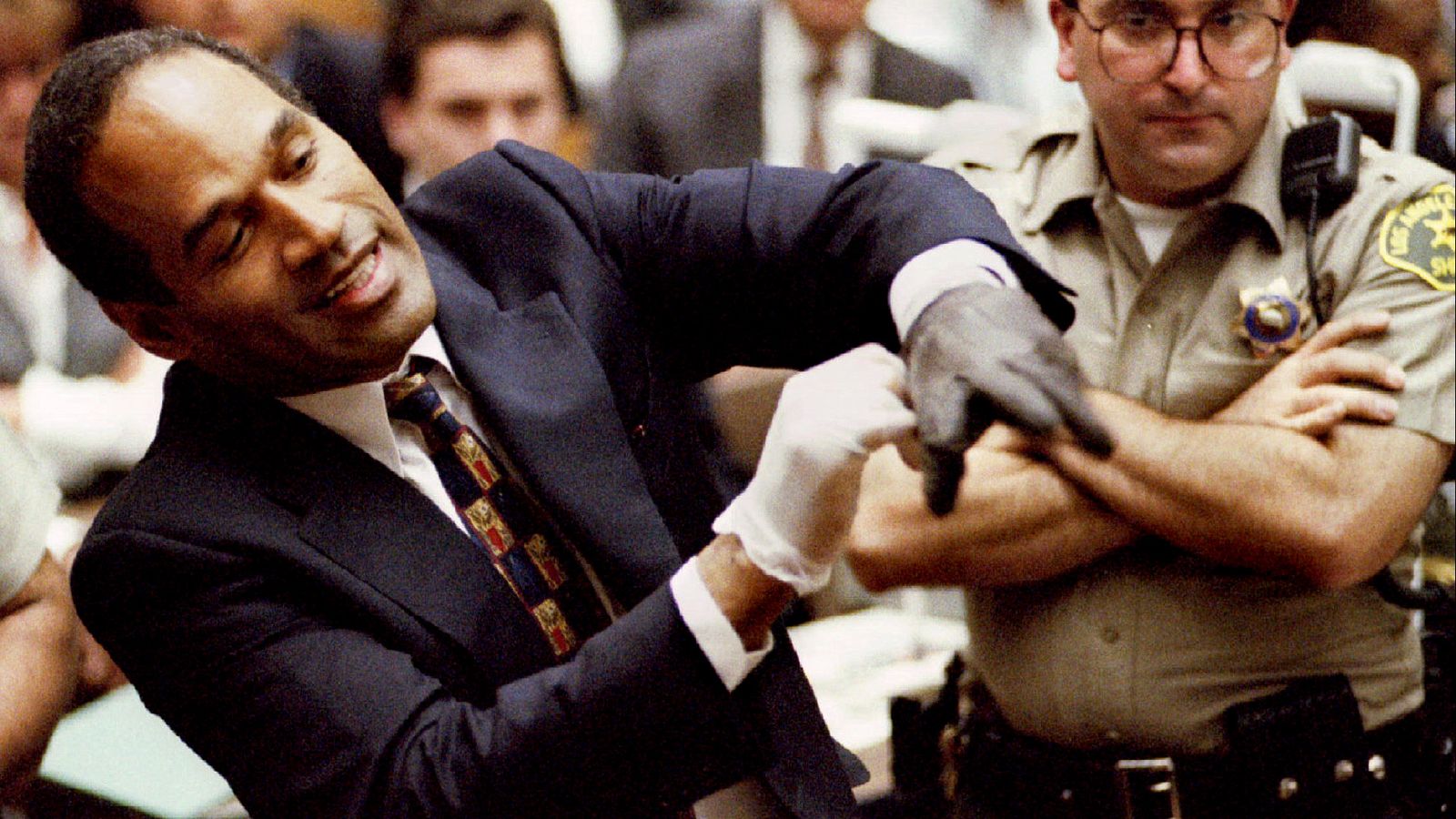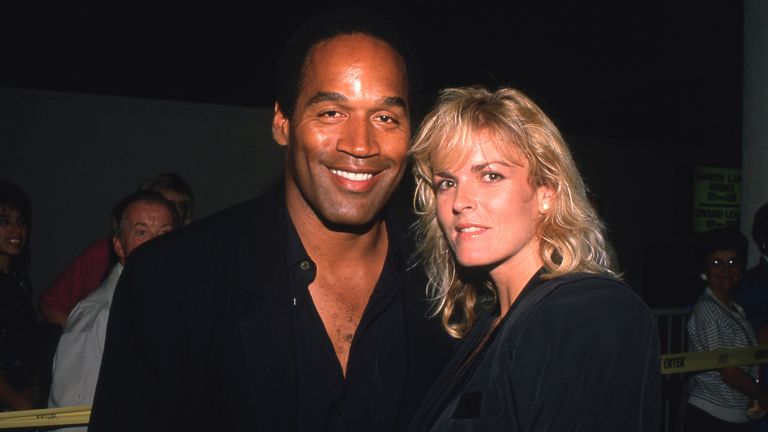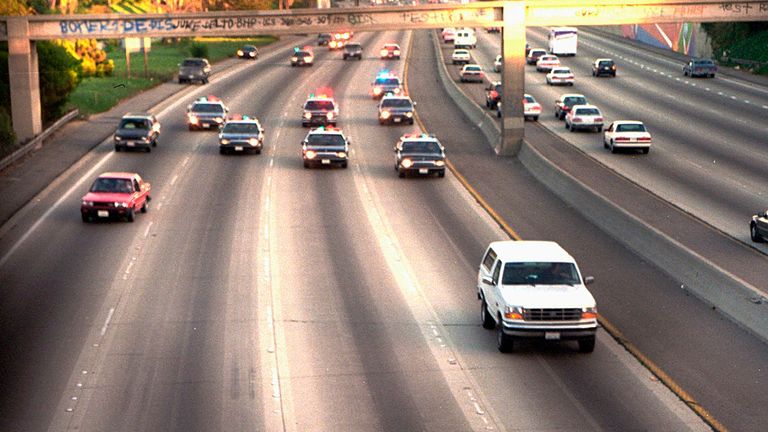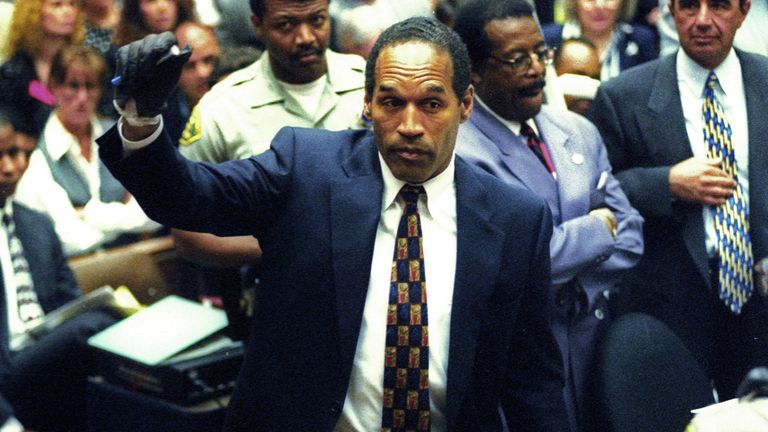Former American footballer and actor OJ Simpson, who has died of cancer, will be remembered most for his role at the centre of the “trial of the century”.
Accused of double murder, his case captured the attention of the US until it came to a dramatic end in late 1995.
Here’s a look back at how that trial unfolded.
12 June 1994
Simpson‘s ex-wife Nicole Brown Simpson was found dead in front of her home in Los Angeles with her friend Ronald Goldman, who was a waiter at a restaurant where she had just dined.
The pair had been stabbed to death outside her home in the neighbourhood of Brentwood.
Read more:
OJ Simpson has died at the age of 76, his family says
17 June 1994
After the bodies were found, suspicion quickly fell on Simpson, who had been married to Nicole for seven years until their divorce became final on 15 October 1992, little more than 18 months before her death.
Simpson had been ordered by prosecutors to surrender, but on this day, carrying a passport and a disguise, he instead fled, with friend and former team-mate Al Cowlings in a white Ford Bronco.
The vehicle was soon spotted on a California freeway and pursued by police in a car chase that was televised live across the country and watched by an estimated 95 million viewers.
Cowlings, in a phone call to police, said Simpson was lying in the back seat of the car holding a gun to his own head. After eventually driving to his Brentwood home he was persuaded to surrender.
24 January 1995
The murder trial, dubbed the “trial of the century” by the media, began.
Prosecutors argued OJ Simpson had killed Nicole and Ron in a jealous rage, and they presented extensive blood, hair and fibre tests linking him to the murders.
The defence countered that the celebrity defendant was framed by racist white police.
15 June 1995
Perhaps the defining moment of the trial came on a Thursday in June, when the prosecution committed what a defence lawyer would later describe as the “greatest legal blunder of the 20th century”.
On this day, a prosecutor asked him to put on a pair of gloves believed to have been worn by the killer.
The gloves appeared to be too small, as OJ Simpson struggled to put on the gloves in a highly theatrical demonstration and indicated to the jury they did not fit.
Read more:
OJ Simpson a ‘completely free man’ after being released from parole
This led defence lawyer Johnnie Cochran to famously state in his closing argument: “If it doesn’t fit, you must acquit.”
3 October 1995
The trial came to an end with two words – not guilty.
OJ Simpson, who maintained from the outset he was “absolutely 100% not guilty”, waved at the jurors and mouthed the words “thank you”.




